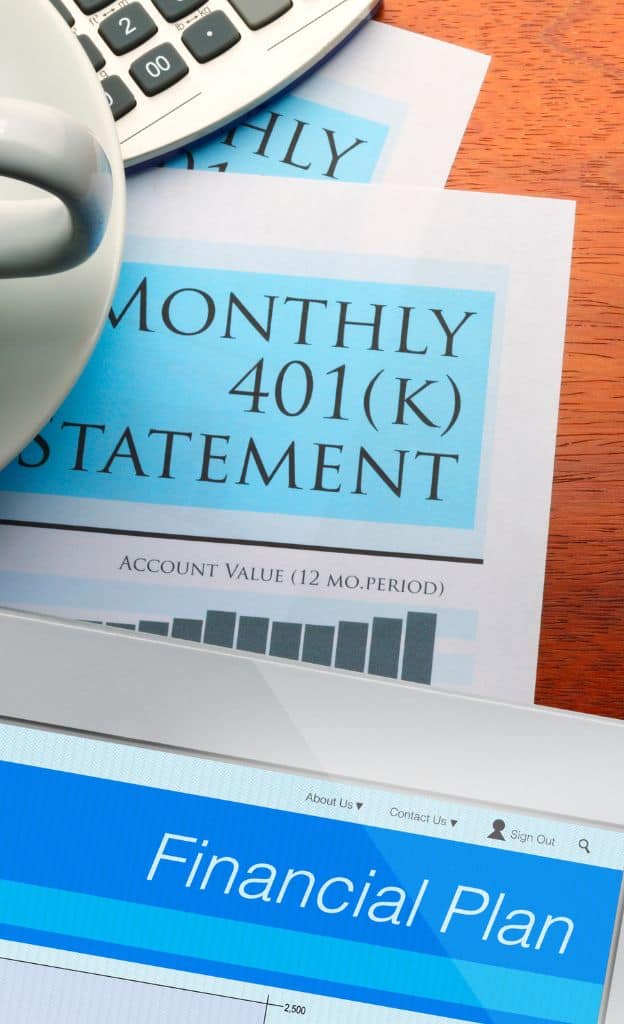Personal Finance For Women

SUMMARY
Simplifying your financial life may sound like a daunting task, but it doesn’t have to be. There are small steps you can take to simplify your financial life. By taking the time to budget, save, and invest, you can improve your financial health and security.
We all fall short when it comes to our finances, so don’t beat yourself up over it. When it comes to your finances, you have to figure out what works for you. It’s ok to take baby steps. You may be an individual that is just learning to navigate your finances and that is ok. The point is to simply get started. One simple step you can put on the front burner is to create an Emergency Fund. If you want more information on an Emergency Fund, read, Simple Tips To Build a $1000 Emergency Fund. Take a deep breath and tackle these 21 steps one at a time.
DISCLOSURE: This post may contain affiliate links, ie., I earn a commission if you decide to make a purchase and sometimes if you just click on a link at no additional cost to you. Please read my Disclosure Policy for more info.
To help you get started, here are 21 tips to simplify your financial life:
1. Make A Budget And Stick To It
Making a budget is the first step to taking control of your finances. It may seem daunting, but you can do it! If you don’t start with a budget, you will be lost as it pertains to your finances in general.
Here are a few tips to help you get started:
-Start by gathering all of your financial information. This includes your income, debts, expenses, and any other financial commitments you have.
-Sit down and figure out where your money is going. Track your spending for a month or two to get a better idea of where your money goes. There are tons of apps that will allow you to track and budget all your expenses online.
-Create your budget by allocating your income to different spending categories. Make sure to leave some room for savings!
-Once you have your budget, make a commitment to stick to it. This may mean making some changes to your spending habits, but it will be worth it in the end.
Making a budget is a great way to get a handle on your finances.
2. Focus On One Financial Goal At A Time
There is no shortage of financial goals that you can set for yourself. You may want to save for retirement, pay off debt, build up your emergency fund, or invest in a new home. While all of these goals are important, it’s important to focus on one goal at a time. Trying to accomplish too many financial goals at once can be overwhelming and may cause you to lose focus.
So, how do you choose which goal to focus on? Start by thinking about which goal is most important to you and which goal you are most likely to achieve. Once you have a goal in mind, put a plan in place and start working towards it. Remember, you can always come back to your other goals later.
I highly suggest that you start with an emergency fund. Work on just saving $1,000 before you implement your other goals.
3. Invest In Yourself By Taking Courses And Learning AboutPersonal Finance
It is never too late to learn about personal finance and invest in yourself. There are a variety of courses available that can help you understand the basics of personal finance and budgeting. By taking courses and learning about personal finance, you can make sound financial decisions that will benefit you in the long run.
Investing in yourself is one of the best things you can do. By taking courses and learning about personal finance, you are setting yourself up for a bright future. So don’t wait – start learning about personal finance today.
4. Invest Your Money Wisely
Making smart investment choices is one of the most important things you can do to secure your financial future. But with so many different investment options out there, it can be difficult to know where to put your money.
There are a few basic principles that can help you make wise investment choices. First, always diversify your investments. Don’t put all your eggs in one basket – spread your money around to different types of investments to minimize your risk. Second, don’t let emotions guide your decisions. It’s important to stay calm and rational when making investment choices and to not let emotions like fear or greed guide your decisions. Finally, always do your homework. Research any investment before you make it, and make sure you understand the risks involved.
I personally have several different accounts to include my Roth IRA, Ellevest, and my Robinhood accounts. Take the time out to do some reading and understand how investments work.
Following these principles can help you make smart, wise investment choices that will secure your financial future.




5. Live Below Your Means
There’s a lot of advice out there on how to save money and live a comfortable life. But one of the best pieces of advice is to live below your means. Living below your means spending less money than you make, even if you have a high income.
Living below your means can be difficult, but it’s one of the best ways to save money and secure your financial future. It may mean making some sacrifices, but it will be worth it in the long run.
If you’re not sure how to start living below your means, there are a few things you can do. Start by tracking your spending and looking for ways to cut back. You can also create a budget and stick to it. And if you have a high income, consider saving a larger portion of your money. Always pay yourself first and live off the rest.
Living below your means is a great way to get you on the path to financial freedom.
6. Automate Your Finances
If you’re like most people, managing your finances can be a time-consuming and tedious task. But what if there was a way to automate your finances so that you could save time and energy?
There are a number of ways you can automate your finances, from setting up automatic payments to tracking your spending. By automating your finances, you can take a load off your plate and free up your time to focus on other things.
If you’re ready to take the plunge, here are a few tips on how to automate your finances.
1. Figure out what you want to automate.
2. Look for software that meets your needs.
3. Consider your budget.
4. Set up a system that works for you.
With a little planning and effort, you can automate your finances and free up your time for other pursuits. Get started today and see for yourself how easy and helpful it can be.
7. Consolidate Accounts
Consolidating your accounts can be a great way to save time and money. When you consolidate your accounts, you are essentially combining all of your accounts into one. This can be a great way to simplify your financial life and make it easier to keep track of your money.
There are a few things you should keep in mind before you consolidate your accounts. First, you will want to make sure that all of your accounts are in good standing. This means that you should have no late payments, collections, or other negative items on your credit report. Second, you will want to make sure that you have a good credit score. This will help you get the best rates and terms when you consolidate your accounts.
If you are thinking about consolidating your accounts, be sure to talk to a financial advisor to see if it is the right decision for
8. Get Rid Of Debt As Quickly As Possible
Debt can be a major financial burden, and it’s important to get rid of it as quickly as possible. There are a few different methods you can use to pay off your debt, and the best method for you will depend on your financial situation.
One popular method is the debt snowball method, where you pay off your debts from smallest to largest. Another method is the debt avalanche method, where you pay off your debts from the highest to the lowest interest rate.
Whichever method you choose, the most important thing is to start paying off your debt as soon as possible. The sooner you start, the sooner you’ll be debt-free.
9. Have An Emergency Fund To Cover Unexpected Expenses
It’s always a good idea to have an emergency fund to cover unexpected expenses. This way, if something unexpected comes up, you won’t have to put it on a credit card and incur interest charges.
How much you should have in your emergency fund depends on your individual circumstances, but a good rule of thumb is to have enough to cover three to six months of living expenses. This will ensure that you have enough to cover your basic needs if you lose your job or have a major unexpected expense.
Start by setting aside a few dollars each week into a savings account. Once you have built up a decent balance, you can start investing your emergency fund in a more growth-oriented account so that it can grow over time.
10. Save For Retirement Even If You’re Young
It’s never too early to start saving for retirement. In fact, the sooner you start, the better off you’ll be. Even if you’re just starting out in your career, there are simple ways to start saving for retirement. Here are a few tips:
Invest in a 401(k) or IRA: Investing in a retirement account is one of the best ways to save for retirement. If your employer offers a 401(k) plan, be sure to contribute at least enough to get the employer to match. And if you don’t have a 401(k) plan, you can open an IRA (Individual Retirement Account) and make regular contributions to it.
Save regularly: One of the best ways to ensure that you’ll have enough money saved for retirement is to make regular contributions to your retirement account.
11. Invest In Tax-Advantaged Accounts
Investing in tax-advantaged accounts is a great way to save for retirement. These accounts offer tax breaks that can help you save more money for retirement. There are a few different types of tax-advantaged accounts, including traditional IRA accounts, Roth IRA accounts, and 401(k) accounts.
Each type of account has its own rules and benefits, so it’s important to do your research to find the right account for you. Investing in a tax-advantaged account can help you save more money for retirement, so it’s a great way to get started with your retirement planning.
12. Keep Track Of Your Progress And Celebrate Your Successes
As you work towards your goals, it is important to keep track of your progress and celebrate your successes. This will help you stay motivated and on track.
There are a few different ways you can keep track of your progress. You can keep a journal or a blog, or you can simply make a list of your accomplishments. Whatever method you choose, make sure you are being specific and detailed about your successes.
And don’t forget to celebrate your accomplishments! A little self-acknowledgment can go a long way in keeping you motivated. Give yourself a pat on the back, or treat yourself to something special. Whatever you do, make sure you take the time to celebrate your successes.
13. Simplify Your Investment Strategy
There are a lot of investment strategies out there. Some people prefer to just invest in a single stock, while others spread their money across a variety of different stocks and assets. There is no right or wrong way to invest, but if you’re looking for a simple investment strategy, you might want to consider investing in index funds.
Index funds are a type of investment fund that tracks a specific index, such as the S&P 500. When you invest in an index fund, you are essentially investing in all the companies that make up that index. Index funds are a popular choice for investors because they offer a diversified way to invest without having to pick and choose individual stocks.
If you’re interested in simplifying your investment strategy, index funds might be a good option for you. Talk to your financial advisor to learn more about index funds and
14. Consider Using A Financial Planner To Help You Reach Your Goals
A financial planner can help you develop a clear and achievable plan for your financial future. By working with you to identify your goals and assess your current financial situation, a financial planner can help you create a roadmap to reach your goals.
There are many benefits to working with a financial planner. A financial planner can help you:
– Develop a clear and achievable financial plan
– Identify your goals and assess your current financial situation
– Create a roadmap to reach your goals
– Reduce your financial stress
– Increase your financial knowledge
If you’re ready to take the first step towards financial success, consider working with a financial planner.
15. Stay Disciplined With Your Spending
If you want to be successful in business, you need to be disciplined with your spending. It’s easy to overspend when you’re first starting out, but if you’re not careful, you can quickly get yourself into debt.
To stay disciplined with your spending, you need to have a budget and stick to it. Track your expenses carefully and always know where your money is going. Cut back on unnecessary expenses and only spend money on things that will help you grow your business.
If you can master your finances and keep your spending under control, you’ll be well on your way to success.
16. Use Cash To Purchase Items
In today’s world, it’s easy to forget the importance of cash. With the advent of credit cards and mobile payment apps, we often don’t even carry cash with us anymore. But there are still many situations where it’s the best (and sometimes only) form of payment. Here are a few examples:
1. When you’re traveling, it’s always a good idea to have some cash on hand in case of an emergency.
2. If you’re making a large purchase, you may get a better deal if you pay with cash.
3. Some small businesses only accept cash.
So next time you’re tempted to leave your cash at home, think again. It might just come in handy.
17. Experiment With Spending Hacks
If you’re looking to save money, there are a lot of different ways you can go about it. You can cut back on your spending, find ways to earn more money or invest your money wisely. But if you’re really looking to save big, you’ll need to start thinking outside the box.
One way to do this is to experiment with different spending hacks. There are a lot of different hacks out there, and it can be hard to know which ones are worth trying. But if you’re willing to experiment, you could potentially save a lot of money.
So what are some spending hacks you can try? Here are a few ideas to get you started:
Implementing these spending hacks can help you save money and put you on the path to financial success.
– Cut back on your cable TV package: If you’re paying for a lot of channels you never watch, you could be wasting a lot of money. See
18. Cancel All Subscriptions
It is official, you are done with all your subscriptions. You have decided that you do not need any more magazines, streaming services, or online memberships. Now is the time to take control of your spending and cancel all of your subscriptions.
Canceling subscriptions can be a hassle, but it is worth it to save money. To make things easier, we have compiled a list of steps to help you cancel all of your subscriptions.
1. Make a list of all the subscriptions you want to cancel.
2. Find the contact information for each company. This can usually be found on the website or on your statement.
3. Call or email each company to cancel your subscription. Make sure to have your account information handy.
4. If you are asked for a reason, be honest but don’t.
19. Batch Bill Paying All Your Bills
The easiest way to make sure all your bills are paid on time is to set up batch bill payments. This means designating one day each month to pay all your bills at once. You can either set up automatic payments for all your bills or do it manually.
Batch bill paying has several advantages. First, it saves you time because you don’t have to worry about paying bills throughout the month. Second, it can help you avoid late fees because you’re always paying your bills on time. Third, it can help you keep track of your spending because you see all your bills in one place.
Pick a day. I normally suggest the 17th or 18th of the month. If you get paid on the 1st & the 15th, then it allows you to have one check to pay rent or your mortgage and a separate check to pay bills. I also suggest trying to get one or two months ahead, thus when you make a payment, you are either paying in advance or your payments are adding a credit to your accounts such as what would happen on your gas or electric bill..
20. Fund An Emergency Fund
An emergency fund is a crucial part of financial security. It’s a savings account that you use to cover unexpected expenses, like a medical bill or car repair. Having an emergency fund gives you peace of mind knowing that you have money set aside for unexpected costs.
Building an emergency fund can seem like a daunting task, but it’s important to start small. Begin by setting aside a few dollars each week, and then gradually increase the amount you save as you get more comfortable. Once you have a few months of expenses saved, you’ll be in good shape to weather any financial storms that come your way.
21. Simplify Other Areas Of Your Life
One of the most difficult things about modern life is the constant demand for our time and attention. We are expected to be available 24/7 and to juggle a million different tasks every day. This can often lead to feelings of being overwhelmed and stressed out.
One way to combat this is to simplify other areas of your life. This can mean decluttering your home, streamlining your work process, or even just simplifying your daily routine. By eliminating some of the excesses from your life, you can free up time and energy to focus on the things that truly matter to you.
So if you’re feeling stressed and overwhelmed, take a step back and evaluate what you can do to simplify your life. You may be surprised at how much of a difference it can make.
BONUS: Learn To Say No To People Asking To Borrow Money
Most of us have had someone close to us ask to borrow money at some point in our lives. It can be a difficult situation to navigate, as you don’t want to say no but you also don’t want to put yourself in a difficult financial position.
If you are not on solid financial ground and I mean, you already have $10,000 in savings, you can not afford to loan $2. Loaning money can be one of the biggest drains on your finances. It’s ok to tell people NO and you don’t have to provide an explanation. A simple No, I’m unable to accommodate loaning any money at this time is sufficient.
Be prepared to say no – It’s okay to say no if you don’t feel comfortable lending money. It’s your money and you have the right to decide to who you lend it.
Resources
Here are a few more resources that will help you on your financial journey





